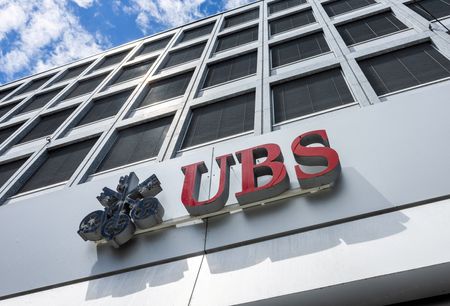By Jonathan Stempel
NEW YORK (Reuters) – A former UBS bond strategist who persuaded the U.S. Supreme Court to make it easier for corporate whistleblowers to win retaliation lawsuits suffered a setback on Monday, as a jury verdict awarding him back pay and other damages was thrown out.
In a 2-1 decision, the 2nd U.S. Circuit Court of Appeals in Manhattan said defective jury instructions at Trevor Murray’s 2020 trial made it too easy to conclude that his whistleblowing contributed to the Swiss bank’s decision to fire him.
A contributing factor “must actually cause or help cause the termination decision – it is not enough merely to influence the termination, or generally to be the type of thing that tends to cause termination,” Circuit Judge Michael Park wrote.
The decision means UBS need not pay Murray the $903,300 jury verdict, plus $1.77 million for legal bills.
U.S. District Judge Katherine Polk Failla in Manhattan had instructed jurors that whistleblowing could be a contributing factor in Murray’s termination if it “tended to affect in any way” UBS’s decision to fire him.
Park said this let jurors hold UBS liable without proof that Murray’s whistleblowing “actually did” lead to his firing. The appeals court returned the case to Failla.
Murray’s lawyers did not immediately respond to requests for comment. UBS declined to comment.
Monday’s decision followed a unanimous Supreme Court ruling last February that restored the jury verdict, which the 2nd Circuit had previously thrown out.
That ruling said financial industry whistleblowers need not prove their employers fired them with “retaliatory intent,” but only that they were treated differently for whistleblowing.
Murray said UBS fired him in February 2012 after he complained about pressure to issue bullish research on commercial mortgage-backed securities to support the bank’s trading operations.
He said UBS’s conduct violated the Sarbanes-Oxley corporate governance law.
UBS said it fired Murray as part of a broader cost-cutting that included thousands of job losses, following a $2 billion loss by a rogue trader.
Circuit Judge Myrna Perez dissented from Monday’s decision, saying reasonable jurors would have understood Failla’s “perfectly adequate” instructions.
The case is Murray v UBS Securities LLC et al, 2nd U.S. Circuit Court of Appeals, No. 20-4202.
(Reporting by Jonathan Stempel in New York; Editing by Matthew Lewis)






